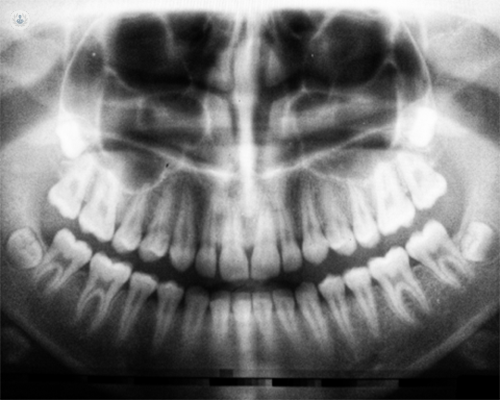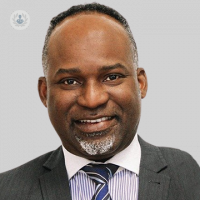How to relieve wisdom teeth pain: Part 1- Understanding wisdom teeth
Written by:Wisdom teeth are by far the most painful and troublesome of all teeth, particularly while they are emerging. In part one of this article, Mr Kunmi Fasanmade, a highly qualified and experienced consultant oral and maxillofacial surgeon, has kindly shared his expert knowledge on wisdom teeth.

Why do we have wisdom teeth and when do they start to grow through?
The third molar, also known as the wisdom tooth can be present in all the quadrants of the jaw, although some individuals don’t have any. The question as to why nature presented us with it is a very interesting concept. The human diet has evolved over time and in the very early stages of human existence our foods were very grainy and fibrous and required a lot of chewing. As you know the molars are responsible for grating fibrous and coarse foods into fine elements before they are swallowed. The teeth before the molars, (the premolars) of which we have two per quadrant, as well as the molar teeth, are responsible for the grinding of such food.
Herbivorous animals that consume a lot of grass and fibre have multiple molar teeth to help with this sort of chewing, subsequently their jaw is long enough to accommodate these. In other primates the jaw size is usually big enough to accommodate the molar teeth. However, as the human diet in the modern era is becoming more refined, we are no longer requiring such heavy chewing to sustain our calorific intake and therefore the size of the jaw is progressively getting smaller. This has led to a lack of sufficient space to accommodate the third molar. This then means that the wisdom tooth/teeth may become stuck during its growth and is not able to be fully accommodated in the jaw, leading to the condition called an impacted wisdom tooth.
The wisdom tooth is one of the last teeth to be fully developed. The development of the wisdom teeth in the jaw starts at a much earlier age and the evidence is that somewhere between ages 7 – 10 years is when these teeth begin to develop whilst deeply embedded inside the jaw. They usually then erupt into the mouth somewhere between the ages of 17 and 21. There are subtle variations between the sexes and between different ethnicities.
Is it guaranteed that all 4 wisdom teeth will come through?
There are absolutely no guarantees that the wisdom teeth will fully erupt into the mouth. There are a number of things that can occur in terms of the growth of the third molar into the mouth such as:
- The wisdom teeth not erupting at all - This can be the case with one quadrant or quadrants. The reasons for this are that either the wisdom tooth has failed to develop at all or that it is deeply impacted and covered by jaw tissue.
- The wisdom teeth fully erupting into the mouth - Usually this does not warrant any particular intervention as the patients do not record any difficulties with their wisdom teeth. These will be treated as normal teeth and can be restored if there are problems such as decay occurring within them.
- The last possibility is that they will become stuck and partially erupted leading to the condition called impacted wisdom teeth. This will predispose you to occasional infections of the gum called pericoronitis and can be a cause of significant discomfort and even potential hospital admission.
What causes wisdom tooth pain?
Wisdom tooth pain can result due to several situations. It can be an inherent problem in the tooth itself such as decay (caries), which could develop to a point where it causes pain within the nerve (pulp) of the tooth. Pulpitis is a significant symptom of pain which is difficult for the patient to identify which tooth it is coming from (poor localisation of pain). If this is the case, you should see your dentist to have an assessment in this area.
Another cause of wisdom tooth pain is that if the pulpitis is not addressed early enough, it can lead to infections in the jawbone. When the pulp becomes infected it causes an abscess which can be very painful and very difficult to relieve the pain. Such symptoms must be addressed promptly by a visit to the dentist who will then refer for the wisdom tooth to be removed.
An additional possible cause of wisdom tooth pain would be food collecting in and around an impacted wisdom tooth as well as debris which cannot be cleared. This can lead to inflammation around the gum associated with the wisdom tooth and possible bone loss. It is called Pericoronitis. Sometimes this can progress into an abscess which can restrict mouth opening and can be potentially life-threatening. So, any such pain or difficulties around wisdom teeth must be addressed promptly.
Read more: How to relieve wisdom teeth pain: Part 2- Treatment
For further consultation on wisdom teeth or any other issue concerning the mouth and face, you can request an appointment with Mr Fasanmade by visiting his Top Doctors profile.


